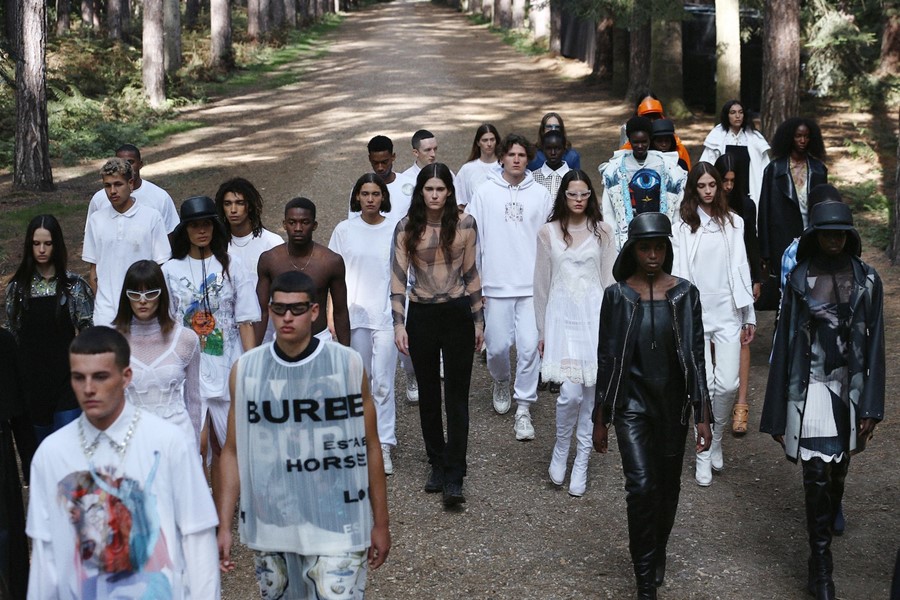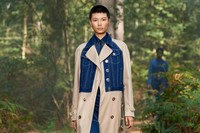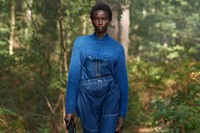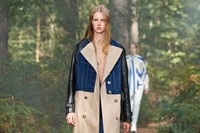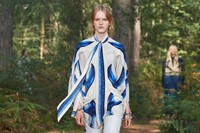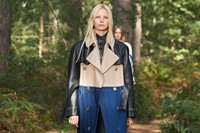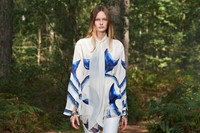“The collection is called In Bloom because I was thinking about regeneration, about dynamic youth, about nature constantly recreating itself,” said Riccardo Tisci of the audience-less spectacle, which took place today in the British countryside
This afternoon, Riccardo Tisci debuted his Spring/Summer 2021 collection for Burberry via an audience-less presentation, staged amid British woodland. Titled In Bloom, the show – which the house dubbed a “performance piece” – was the result of a collaboration with German artist Anne Imhof, and broadcast on Twitch, a live-streaming service. “A collision of fashion and art,” said the brand.
Following a “pre-show” – hosted by Erykah Badu, Rosalía, Steve Lacy and Bella Hadid – models wove through forest trails before arriving at the show set, a circular construction where Imhof’s close collaborator, musician and artist Eliza Douglas, was performing. White-clad dancers stood motionless as models made their way around the stark set, which comprised of netted fencing, scaffolding and industrial white-metal plinths, before moving through the space in choreographed gestures evoking Imhof’s performance piece Sex, which took place at Tate Modern in March last year.
“The circle is hugely symbolic – regrowth, renewal, the circle of life,” Tisci said of the show’s mise-en-scène. “The collection is called In Bloom because I was thinking about regeneration, about dynamic youth, about nature constantly recreating itself, always growing and evolving, always alive. Water is a symbol of that also – of newness, freshness and cleansing. And through water, life grows – water is what allows nature to bloom. Everything is circular.”
The collection began with thoughts of Tisci’s adopted home country: “[I was thinking about] British summer time; embracing the elements with a trench coat on the beach mixing with the sand and the water,” he said. “I envisioned the people of this space, like the lighthouse keeper, and a love affair between a mermaid and a shark, set against the ocean, then brought to land.”
It made for a focused offering from the designer – “one vision, one story,” he described – something he credits in part to the unique circumstances in which the show takes place, whereby, as London Fashion Week begins, the country’s designers are forced to consider how they show their collections going forward, and the potential for change that holds. “A redress, a reset, a new way of thinking,” read the collection notes.
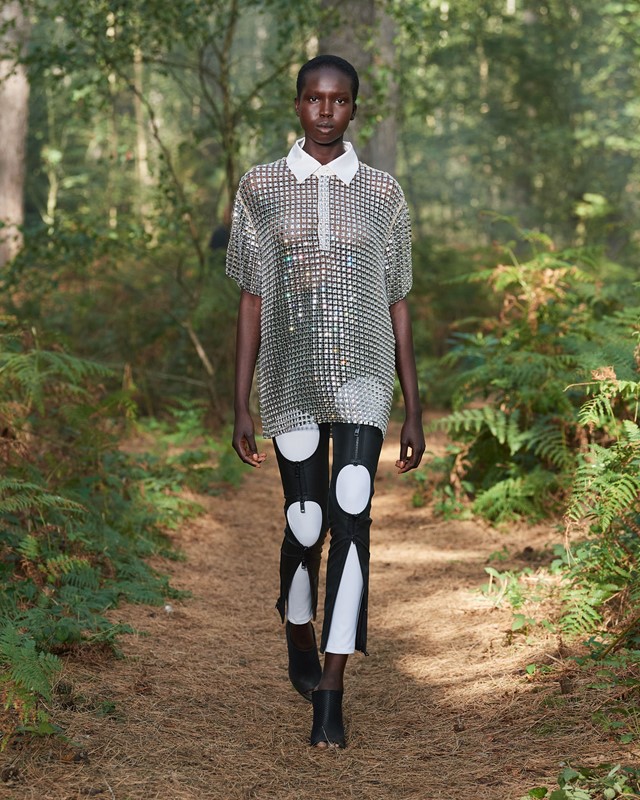
This meant a doubling down on both the house’s DNA and Tisci’s own design vocabulary, which he has implemented since taking the helm in 2018 – notably, a strong streetwear influence. Like the set, which contrasted the majestic grandeur of nature with Imhof’s industrial, monolithic installation, the womenswear collection struck a similar juxtaposition, blending softer elements – tulle, chiffon, glittering paillettes, and the like – with something hardier: top-stitched denims, plaid shirting, weatherproof rubberised trench coats and parkas.
Menswear, meanwhile, looked towards Burberry’s longtime link with water and the ocean: Thomas Burberry, the house’s founder, invented waterproof gabardine, the world’s first technical fabric, used by the Navy and Arctic explorers in the early 20th century. Drawing inspiration from the uniform of those who make their living at sea, rubberised fabrics, sturdy workwear denims, and Burberry gabardine recurred throughout (one vest even recalled the humble fishing net, albeit here studded with crystals).
“Water itself is symbolic of renewal, regeneration, changing tides and hope springing eternal,” the house said of the elemental inspiration point. “Today, it also represents freedom – a release, an escape, the excitement of new and unknown environments to explore. Great expanses, distant horizons, from which new life blooms.”
